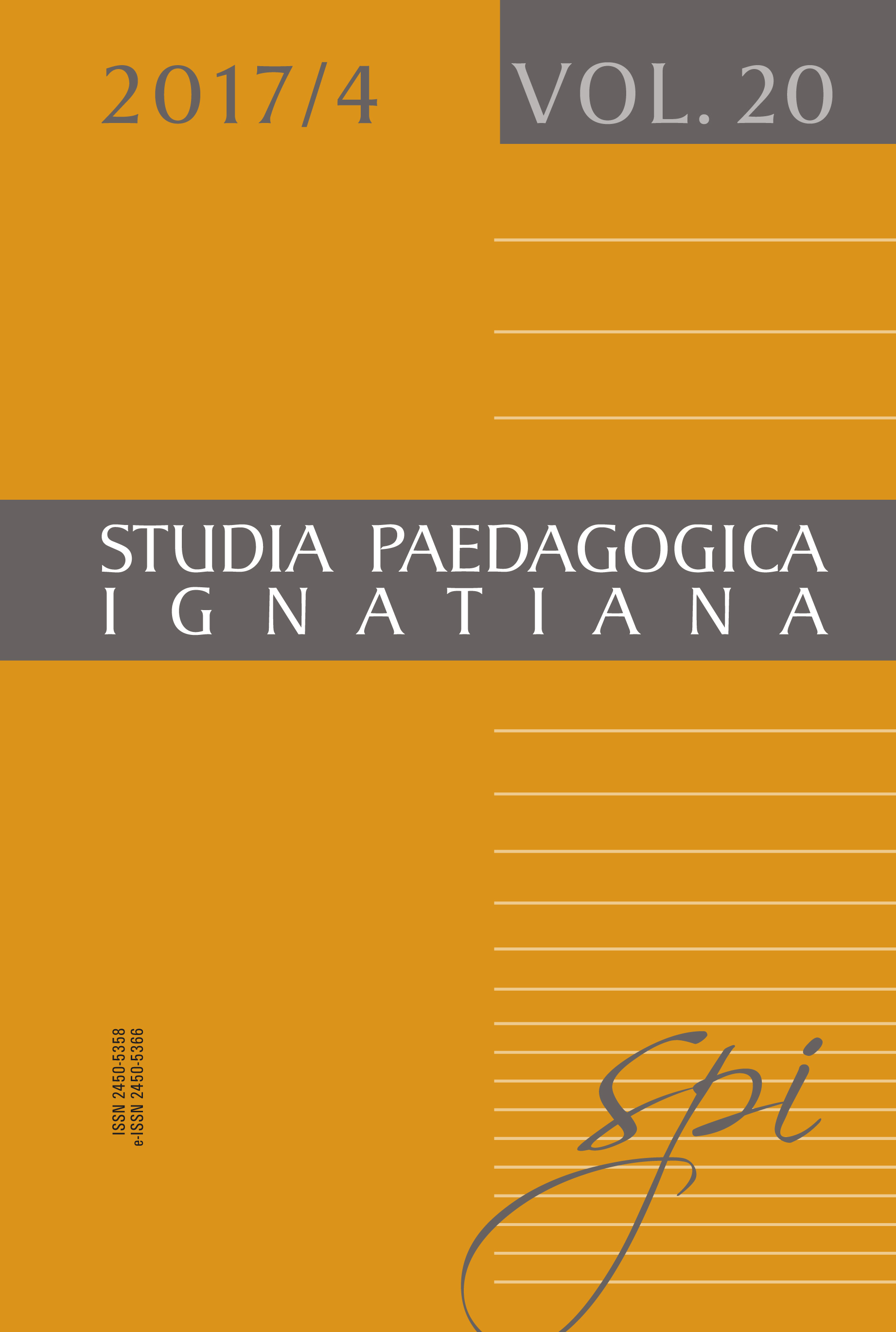Biblical History as the Locus Ethicus in Sofia Cavalletti’s Concept of Religious Education
Biblical History as the Locus Ethicus in Sofia Cavalletti’s Concept of Religious Education
Author(s): Barbara SurmaSubject(s): Christian Theology and Religion, Philosophy, Social Sciences, Education, Ethics / Practical Philosophy, Theology and Religion
Published by: Uniwersytet Ignatianum w Krakowie
Keywords: The Chronicles of Narnia; C.S. Lewis; acquisition of virtues; vicariousness; forgiveness; charity; moral virtues;children’s literature;
Summary/Abstract: Children’s contemporary literature often presents an ambiguous and even immoral world of values, not to speak of Christian virtues, which are neither emphatically mentioned nor even faintly evoked. Theological virtues enhance human capacities and elevate every person to their highest being, to the supernatural order they are created for. Directly related to the Scriptures, for they are revealed, the theological virtues suggest an unavoidable and clear connection to God. In C.S. Lewis’ Chronicles of Narnia we find a useful counterexample to teaching morals through literature: these seven fantasy novels provide multiple examples of how to be faithful, hopeful and even how to practice the virtue of charity. Considering that through a fictional evocation of certain concepts these might be apprehended more significantly, in this paper we aim to explore new readings of the saga that go beyond a general approach in order to transcend its allegorical mechanisms and respond to criteria such as the virtue of charity and its two main features: vicariousness and forgiveness.
Journal: Studia Paedagogica Ignatiana
- Issue Year: 20/2017
- Issue No: 4
- Page Range: 99-109
- Page Count: 11
- Language: English

